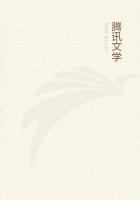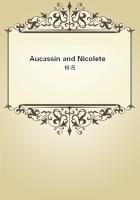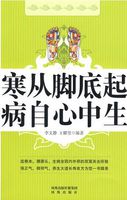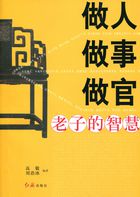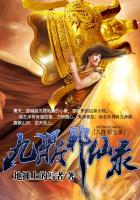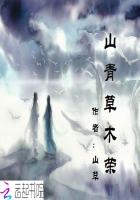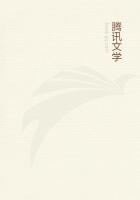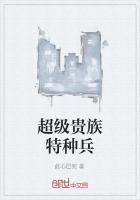After surveying these articles for some time with no little interest, I passed into the garden, in which there were small parterres of flowers, and two or three trees, and which, where the house did not abut, was bounded by a wall; turning to the right by a walk by the side of a house, I passed by a door - probably the one I had seen at the end of the passage - and arrived at another window similar to that through which I had come, and which also stood open; I was about to pass through it, when I heard the voice of my entertainer exclaiming, "Is that you? pray come in."I entered the room, which seemed to be a counterpart of the one which I had just left.It was of the same size, had the same kind of furniture, and appeared to be equally well stocked with china; one prominent article it possessed, however, which the other room did not exhibit - namely, a clock, which, with its pendulum moving tick-a-tick, hung against the wall opposite to the door, the sight of which made me conclude that the sound which methought I had heard in the stillness of the night was not an imaginary one.
There it hung on the wall, with its pendulum moving tick-a-tick.The old gentleman was seated in an easy chair a little way into the room, having the glass-door on his right hand.
On a table before him lay a large open volume, in which Iobserved Roman letters as well as characters.A few inches beyond the book on the table, covered all over with hieroglyphics, stood a china vase.The eyes of the old man were fixed upon it.
"Sit down," said he, motioning me with his hand to a stool close by, but without taking his eyes from the vase.
"I can't make it out," said he, at last, removing his eyes from the vase, and leaning back on the chair, "I can't make it out.""I wish I could assist you," said I.
"Assist me," said the old man, looking at me with a half smile.
"Yes," said I, "but I don't understand Chinese.""I suppose not," said the old man, with another slight smile;"but - but - "
"Pray proceed," said I.
"I wished to ask you," said the old man, "how you knew that the characters on yon piece of crockery were Chinese; or, indeed, that there was such a language?""I knew the crockery was china," said I, "and naturally enough supposed what was written upon it to be Chinese; as for there being such a language - the English have a language, the French have a language, and why not the Chinese?""May I ask you a question?"
"As many as you like."
"Do you know any language besides English?""Yes," said I, "I know a little of two or three.""May I ask their names?"
"Why not?" said I, "I know a little French.""Anything else?"
"Yes, a little Welsh, and a little Haik.""What is Haik?"
"Armenian."
"I am glad to see you in my house," said the old man, shaking me by the hand; "how singular that one coming as you did should know Armenian!""Not more singular," said I, "than that one living in such a place as this should know Chinese.How came you to acquire it?"The old man looked at me, and sighed."I beg pardon," said I, "for asking what is, perhaps, an impertinent question; Ihave not imitated your own delicacy; you have never asked me a question without first desiring permission, and here I have been days and nights in your house an intruder on your hospitality, and you have never so much as asked me who Iam."
"In forbearing to do that," said the old man, "I merely obeyed the Chinese precept, 'Ask no questions of a guest;' it is written on both sides of the teapot out of which you have had your tea.""I wish I knew Chinese," said I."Is it a difficult language to acquire?""I have reason to think so," said the old man."I have been occupied upon it five-and-thirty years, and I am still very imperfectly acquainted with it; at least, I frequently find upon my crockery sentences the meaning of which to me is very dark, though it is true these sentences are mostly verses, which are, of course, more difficult to understand than mere prose.""Are your Chinese studies," said I, "confined to crockery literature?""Entirely," said the old man; "I read nothing else.""I have heard," said I, "that the Chinese have no letters, but that for every word they have a separate character - is it so?""For every word they have a particular character," said the old man; "though, to prevent confusion, they have arranged their words under two hundred and fourteen what we should call radicals, but which they call keys.As we arrange all our words in a dictionary under twenty-four letters, so do they arrange all their words, or characters, under two hundred and fourteen radical signs; the simplest radicals being the first, and the more complex the last.""Does the Chinese resemble any of the European languages in words?" said I.
"I am scarcely competent to inform you," said the old man;"but I believe not."
"What does that character represent?" said I, pointing to one on the vase.
"A knife," said the old man, "that character is one of the simplest radicals or keys.""And what is the sound of it?" said I.
"Tau," said the old man.
"Tau!" said I; "tau!"
"A strange word for a knife is it not?" said the old man.
"Tawse!" said I; "tawse!"
"What is tawse?" said the old man.
"You were never at school at Edinburgh, I suppose?""Never," said the old man.
"That accounts for your not knowing the meaning of tawse,"said I; "had you received the rudiments of a classical education at the High School, you would have known the meaning of tawse full well.It is a leathern thong, with which refractory urchins are recalled to a sense of their duty by the dominie.Tau - tawse - how singular!""I cannot see what the two words have in common, except a slight agreement in sound.""You will see the connection," said I, "when I inform you that the thong, from the middle to the bottom, is cut or slit into two or three parts, from which slits or cuts, unless Iam very much mistaken, it derives its name - tawse, a thong with slits or cuts, used for chastising disorderly urchins at the High School, from the French tailler, to cut; evidently connected with the Chinese tau, a knife - how very extraordinary!"

